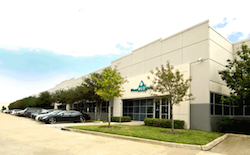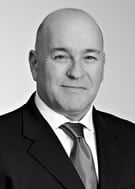 |
| A PharMEDium facility--Courtesy of PharMEDium |
Drug sourcing and distribution behemoth AmerisourceBergen ($ABC) figures that the best way to source compounded drugs for its hospital clients is to manufacture them itself. To do that, company will shell out more than $2.5 billion to buy one of the largest sterile drug compounders in the U.S.
The Pennsylvania-based AmerisourceBergen today said it would pay $2.575 billion to get its hands on PharMEDium Healthcare Holdings which it is buying from Clayton, Dubilier & Rice. The private equity group bought control of the compounding company in early 2014, in the midst of a watershed change in the industry when the FDA took oversight responsibility for large operators like PharMEDium. Founded in 2003, PharMEDium has compounding centers in Tennessee, Mississippi, Texas and New Jersey, all registered with the FDA, from which it ships custom-made meds to more than 3,000 hospitals.
AmerisourceBergen said today that the deal is expected to close by the end of this year and is will add between $0.22 to $0.26 a share to its adjusted earnings for fiscal 2016. It also sees $30 million in costs that it can trim out of the operation by fiscal 2018.
 |
| AmerisourceBergen CEO Steven Collis |
AmerisourceBergen CEO Steve Collis said in a statement that PharMEDium's size and "ability to consistently deliver high quality CSPs" will insert AmerisourceBergen squarely into "an important growth area of the U.S. healthcare market."
It is a growth area that has gone through a lot of changes in recent years and Collis did not mention that PharMEDium has had it own issues in that change. It received a warning letter in July 2014 from the FDA over concerns about "insanitary conditions." The inspection of its four facilities had actually occurred in 2013 when the FDA undertook a crash inspection spree to inspect all of the largest compounders.
That campaign followed a national outbreak of fungal meningitis that was tied to contaminated drugs sold by the now-defunct New England Compounding Center. The outbreak infected 751 people, killing 64 people who had received injections of a steroid for pain. Fourteen NECC owners and employees were indicted late last year in connection with that incident, some of them for second-degree murder.
The 2012 outbreak brought stark attention to the growth of the drug compounding industry. Where once it was made up of small operations that were custom mixing drugs for doctors, in the last 15 years it has spawned a number of very large operations that were more like manufacturers than pharmacies, mass producing drugs and using sales forces to market them nationally. The public outcry over the outbreak led to Congress passing the Drug Quality and Security Act, which gives the FDA new, but limited, powers to oversee compounding pharmacies that volunteer to be regulated. PharMEDium was one of the first to sign up.
The PharMEDium deal is its second major acquisition announced this year by AmerisourceBergen, which has been on an expansion spree. This spring it completed the $2.5 billion acquisition of the international animal health distribution company, MWI Veterinary Supply.
- here's the release